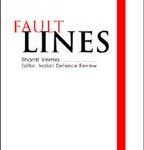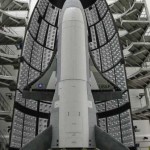The divisive Indian culture continues to act as the principal destroyer of consolidation of military power by dithering over the appointment of a Chief of Defence Staff (CDS). The ‘divide and rule’ concept not only costs the taxpayer a huge monetary loss through duplication of efforts by Army, Navy and the Air Force but also denies the government a well considered, single-point, professional military advice with integrated inputs from the three Defence Services depicting the big picture. Thus the sword of the state stands blunted by the state itself!
By the appointment of a CDS, New Delhi stands to gain multiple advantages. Foremost, the CDS, as a principal military advisor to the government, will consult the three chiefs to develop a joint military strategy after vetting the National Security Strategy. Unfortunately, like the CDS, the national security strategy document too does not exist and needs to be developed! These detailed strategic consultations will help decipher for the leadership, the security picture in its entirety, and enable it to take anticipatory action instead of fire fighting, which is the current norm. This is particularly relevant, as it is an incontrovertible fact that Indian politicians and bureaucrats both lack the insights necessary to manage military affairs.
The general rule for use of the military — “…better to keep a nation intact than to destroy it, better to keep an army intact than to destroy it, better to keep a division intact than to destroy it, better to keep a battalion intact than to destroy it, better to keep a unit intact than to destroy it…” Sun Tzu
For example, the PM’s vision of converting Siachen into a ‘mountain of peace’ is worthy of praise. However, his subsequent consultations with the military to achieve this objective is like putting the cart before the horse. A military briefing by the CDS at the initial stage might dictate that he needs to play poker with Islamabad instead of issuing a statement of political intent at this early stage without a military road map in place.
Similarly, while allocating resources in the defence budget, year in and year out, lack of military expertise in the bureaucracy has forced it to provide in the ratio of 5:3:2 to the Army, Air Force and the Navy without giving due consideration to the military assets that are required on a priority after interpreting the long-term strategic picture. Or take the case of the three services buying Igla missiles, helicopters or UAVs from the same vendor, independent of each other. This results in the denial of the benefits of economy of scale for the Indian exchequer. Therefore, such tasks are best left to the CDS to optimise the cost-benefit ratio with the civil leadership having the final say.
Another vital gain by appointing a CDS is that the scattered military power, when honed into an integrated punch under a unified command, can deliver more bangs for the buck. Unlike the federal structure of the Union that correctly permits space to all regions and communities in meeting their aspirations, the reverse is true in all militaries. They can execute a superior game plan only under a regimented hierarchy.
This is why the Joint Chiefs of Staff concept cannot deliver — the principle of ‘first among equals’ works for a democratic setup but not for the military. Therefore, the CDS also needs to be a five star General.
In the 1962 conflict, our air power assets were lying idle. In the 1965 War, we ended employing the land forces, wasting others. In the 1971 Indo-Pak War. the Air Force felt left out of the loop! In Kargil we not only refused to employ the Air Force boldly, but also failed to open other fronts with the help of the Navy. Also, one of the reasons the Indian Army did not cross the LoC was that it was not adequately equipped beforehand. We continue to waver in our acquisition programmes even today for want of an efficient system.
To win wars decisively in the future, we must utilise the current period of tranquility to integrate the forces under the CDS…
In fact, the adversary need not mount a war as he can halt India’s weak bureaucratic and political decision-making military modernisation cycle by intelligently using the local media alone! Surrounded with multiple threats on land and sea, with aspirations for a global role, where it may become necessary for India to deploy its forces in the region or beyond, it is imperative to understand that no single service by itself can win future wars.
Therefore, a dedicated Chief of the Defence Staff is a necessity to coordinate and command inter-service operations, deploy strategic forces, hone the military into integrated theatre commands, eliminate duplication of resources, and maximise strategic advantages. The Defence Secretary, meanwhile, shapes the policy and budget, personnel and infrastructure, civilian administration, defence procurement, coordinates the departments of defence, defence production, DRDO with each other and with the CDS, as also acts as the interface with Parliament.
 To win wars decisively in the future, we must utilise the current period of tranquility to integrate the forces under the CDS rapidly with the personal intervention by the Prime Minister, as elements in both the bureaucracy and the military are involved in detrimental turf wars.
To win wars decisively in the future, we must utilise the current period of tranquility to integrate the forces under the CDS rapidly with the personal intervention by the Prime Minister, as elements in both the bureaucracy and the military are involved in detrimental turf wars.




